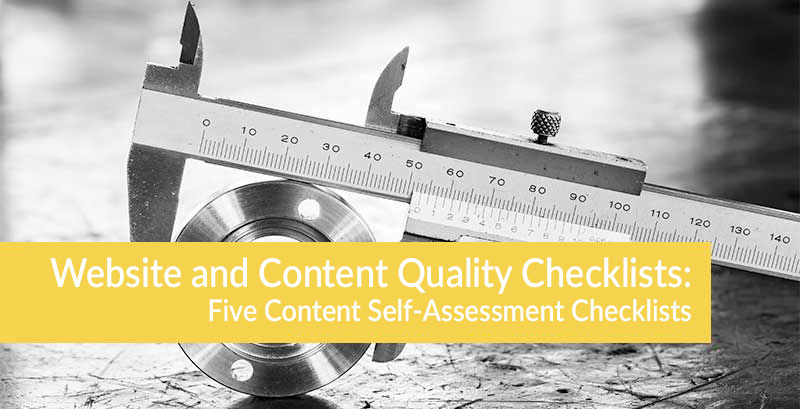Focus on the basics of SEO so you get found, ranked, and clicked
The fundamentals and basics matter. And when it comes to SEO, we want you to step back and make sure you’re doing the basics right.
Think back to how you learned how to ride a bike. You started with a balance bike, learning how balance works and then after a few spills and thrills moved on to a two-wheeler. SEO is the same.
You need to start with SEO basics – keywords, internal links, search intent, clean layout, quality content, and a secure and fast website. When you get this right and your content starts ranking well in search engines, you can move onto advanced SEO techniques and trends.
If you take away one thing from this blog it’s this: the basics of SEO are essential to getting found, ranked, clicked, read, and shared.
What is SEO?
SEO stands for Search Engine Optimization. SEO is the specialized approach that supports your website in standing out from the rest of the crowd.
SEO is more than keywords. SEO includes:
- Page formatting
- Website layout
- Content structure
- Links
- Image tags, and more.
These SEO essentials help you improve and promote your website, so it receives traffic from search engines and meets the needs of your readers and customers.
Remember, your SEO strategy should be to optimize your website content so you can meet search intent – giving your audience and search engines what they want.
How does SEO work?
Off- and on-page SEO work together to help you rank in search engine results.
On-Page SEO is the content and website code (HTML) that you optimize for search engine results and ranking.
Think of on-page SEO as what you see when you look at a web page – the titles, images, headings, menus, links, and content. On-page SEO includes:
- Internal linking
- Image optimization
- Quality content
- Mobile-ready design
- Keyword optimization
- Clean HTML code
- User-friendly design
Off-page SEO is everything you do away from your website to improve visibility, expertise, authority, and trust (E-A-T) with search engines and people.
Off-page SEO includes:
- Backlinks
- Social media posts
- Guest articles/blogging
- Influencer marketing
- Videos
- Press releases
- Email newsletters
Search engines like to know the content they rank highly is respected and trustworthy. Off-page SEO helps you establish this, by having people and online sources talk about and link to your content.
10 Keys to SEO: Focus on the Basics
To get the basics of SEO right, you need to know what your website, content, and social media posts need to accomplish.
Open a blank document and write down your answers to these questions. Return to your answers whenever you’re unsure of your SEO, website, and content goals.
- What do you want to do with your website? Are you selling direct to consumers? Are you a B2B website? Do you want to serve as an information hub for your industry?
- Who is your audience? What is the age range of your audience? What is the average income? How does your audience use the internet – do they prefer articles, whitepapers, videos, webinars, etc? Do you know what your competitors are doing?
- How will you manage content? Do you have a team of writers and editors to research and write good content? Do you have an editorial calendar that fits with the flow of your industry? Are you attending any trade shows or conferences, if so, how will you include these events in your content?
- What does your audience want and need to know? What keywords and keyword phrases are they type or asking Google?
Now that you know what you need from your website, content, and social media posts, you can focus on the 10 keys to SEO. As you work through these essentials to SEO, remember what you want to achieve and who you’re trying to connect with.
Focus on these 10 keys to SEO:
- Find your keywords.
Keywords are always changing. Use a free tool like SearchVolume.io to find your keywords and significant monthly search volume. Type your keywords into Google and look at the search results, People Also Asked, featured snippets, and the top-ranking pages to understand the best ways to use these keywords to meet search intent. - Get the title right.
The title is the first impression people have of your content in the search results page. Your title has to immediately convince people that your content answers their questions. Remember to use your keyword in the title and to tell people what they’ll get from your content. - Write unique meta descriptions.
Every single page on your website needs a unique meta description. Meta descriptions are the two or three sentences that appear below the page title on the search engine results page. People read your meta description to learn what your page will give them. - Create quality content.
Don’t post content for the sake of posting content. Make sure each and every page, blog, article, etc. provides high-quality content. The best way to earn audience and search engine trust is by proving you’re an expert in your field – do this with quality content that satisfies search intent and provides a positive user experience. - Use your keywords naturally.
Write and create content that uses your keywords naturally. If you feel like you’re forcing your keywords into sentences, this is a sign you need to start over with your content. Think about the question your audience has and how you can best answer this, you’ll find your keywords fit naturally into your title, headings, meta description, and content. - Create internal links.
Internal links help your readers navigate your website, finding related content that helps them learn. When you create your internal links, make sure the anchor text (the text people click) uses your keywords and keyword phrases. - Use HTTPS.
HTTPS gives your readers (and you) an extra layer of security by encrypting data and protecting it from hackers. Make sure your URLs start with HTTPS and that a padlock is displayed in the browser URL bar. - Measure your website speed.
Google has made site speed a ranking factor in its Page Experience update. Use Google’s Page Speed Insights tool to know how quickly your site loads and how you can speed up your site. You have about 3 seconds to capture reader attention – so don’t waste this with a slow loading website. - Be mobile-friendly.
Your readers and Google are all about mobile devices. Make sure your website loads quickly and clearly on mobile devices. The menus need to be easy to use, the buttons need to work, and the layout must be highly readable. - Get the details right.
You want people to read and relate to your content. This means you need to make it easy for them. Write like you speak. Use whitespace. Take advantage of bullets and numbered lists. Make sure your sub-headings tell the reader what they’ll learn. Try to use simple sentences and short paragraphs.
How To Keep Learning about SEO
Like the internet, SEO is not static. You need to stay up to date with the latest trends, technologies, and search engine algorithm changes.
We understand that SEO is not your day job (it’s ours) but the more you understand SEO, the easier it is to write compelling content, deliver a positive user experience, and satisfy search intent of your audience.
Keep learning about SEO with these articles and resources:
- Know Agency free 8-Week SEO Basics Course: each week you get one short actionable email with practical and useful SEO best practices, advice, and knowledge.
- 2021 SEO Checklist: Use this SEO checklist to make sure you’re getting the most out of SEO, search, content, and Google.
- SEO and Digital Marketing Must Do’s for Marketers, Website Owners, Writers and Strategists: a directory to the content we believe is essential to really understanding SEO and digital marketing
- May 2021 Google Page Experience Update Checklist: be ready for the May Google Page Experience Update with our 7-step checklist.
Knowing your readers, what they want, and how you can help them is essential to getting SEO working for you. SEO should not be complicated. Focus on the basics of SEO – you will get the clicks and traffic you want, and your audience will see you as their trusted expert.
We want you to succeed. Contact us or call us (888-241-4205) and we’ll help you get SEO working for you.
About the author
Jane Phelps is the CEO/Partner at Know Agency. Jane leads client SEO strategy and handles all aspects of in-house SEO demands. This includes providing SEO training, competitive analysis, keyword research, algorithm analysis, and the review of all new content to ensure SEO best-practices are followed. Jane holds a Master’s Certificate in Online Marketing from the University of San Francisco, is BrightEdge Certified.



